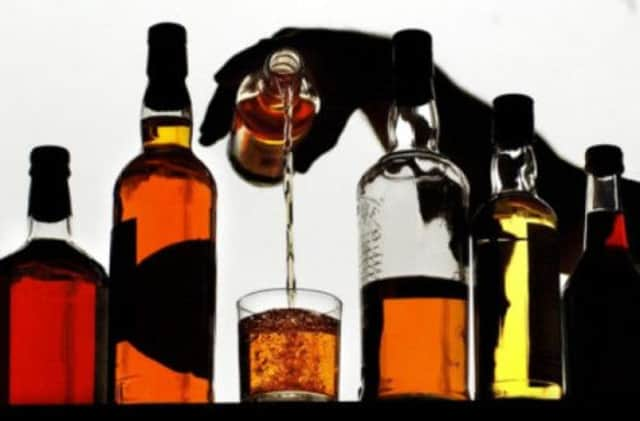Scottish scientists devise bootleg whisky test


The laser device, which can detect fake whisky and other spirits, could save hundreds of lives worldwide each year and help prevent serious injuries such as permanent blindness caused by contaminated alcohol.
Researchers said the on-the-spot test could lead to the development of portable detectors allowing people to test to see if their drinks had been spiked.
Advertisement
Hide AdAdvertisement
Hide AdThe test could also be used by police who currently face lengthy delays waiting for the outcome of laboratory analysis.
Adulterated drinks are a cause for concern in many countries where bootleggers add the industrial chemical methanol to increase the effect of the liquor.
Recent high-profile tragedies have included more than 50 deaths reported in Ecuador in September 2011 from methanol poisoning. In the Czech Republic 19 people died and 30 were hospitalised last September following a similar incident.
In August 2011 five men were killed following an explosion at an illegal distillery in Lincolnshire.
Writing in the Journal of Raman Spectroscopy, Professor Kishan Dholakia, Praveen Ashok, Bavishna Balagopal and of the university’s school of physics and astronomy, revealed how they can place a “teardrop” of whisky on a transparent “plastic chip, no bigger than a credit card”.
Light is then delivered to, and collected from, the liquor sample using optical fibres - each has the dimensions of a human hair - to diagnose the sample by a collection of light scattered from it.
Previous work by the team showed they were able to identify single malt Scotch whiskies based on brand, age and even which cask had been used.
The method exploits both the fluorescence of the whisky and also what is known as the Raman signature of the whisky - this is when light scatters but shifts slightly in energy due to interaction with the molecules in the sample.
Advertisement
Hide AdAdvertisement
Hide AdThe latest study now shows this elegant technique is highly sensitive and can be used to detect trace toxic additives such as methanol at concentrations of less than 1 per cent by volume.
Professor Kishan Dholakia said the “chip” which was originally developed for medical reasons, was a prime example of a technological advance which could be translated into the market place.
“This technology not only can ensure a high degree of quality control for the international drinks industry but could also lead to portable sensors to ensure everyone can enjoy a drink, safe in the knowledge that no toxic additives are present.”
Dr Praveen Ashok, researcher, said: “Sadly, many people lose their lives each year to bootleg drinks and our hope is to see this powerful, simple technology used to alleviate this serious issue”.
Fellow researcher Dr Bavishna Balagopal added: “It is exciting to see the surprising and powerful ways modern photonics can help people, particularly in developing countries.”
The researchers have patented their device and are now hoping to attract the drinks industry to investing in the technology.
A spokeswoman for the legal affairs department of the Scotch Whisky Association, said: “Authenticity analysis is looked after for the Scotch Whisky industry by the Scotch Whisky Research Institute who have a battery of different tests available. However, the industry is always interested in new techniques being developed and will review this new technique if it can be demonstrated.
“Although we have to take action against fake Scotch Whisky around the world, fortunately we have never found one yet which is dangerous to health. That is, of course, obviously a concern with fakes which may be produced in uncontrolled premises.”
Advertisement
Hide AdAdvertisement
Hide AdDr Evelyn Gillan, chief executive of Alcohol Focus Scotland, said: “This new technique is to be welcomed, particularly for those countries where the production of dangerous fake alcohol is a major issue.
“While fake alcohol is not such a significant concern in Scotland, 24 Scots die every week from the consumption of alcohol which is legally produced and regulated. One of the most effective ways of reducing harm and saving lives is to introduce minimum unit pricing.”